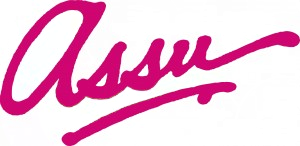URC 2023 Call for Abstracts
Calling all undergrads! We are officially accepting abstracts for the 2023 Undergraduate Research Conference.
Calling all undergrads! We are officially accepting abstracts for the 2023 Undergraduate Research Conference.
The Arbor Journal of Undergraduate Research is the leading student-run academic journal for the arts and science, seeking to publish, highlight, and celebrate the best of undergraduate arts and science research at the University of Toronto.
Fall 2022 ASSU Executive Elections are now open!
Wednesday September 7th from 1-4pm come out and meet more than 40 ASSU Course Unions at the @uoftsu clubs fair!
It’s going to be an extra long weekend! UofT is closed this Thursday and Friday for Canada Day.
We are pleased to announce the winners of our 2021-2022 ASSU Awards. These awards highlight the best of student leadership and service, as well as exceptional teaching in the Faculty of Arts and Science.
Congratulations to the new team, and thanks to all of the amazing candidates who ran in our elections.
We are excited to announce that the third volume of Arbor Journal is now live! Please take the time to read the amazing articles.
Here are the statements from candidates in our Spring 2022 Executive Elections
ASSU Council will elect one (1) President and four (4) Executives at the March Council meeting. These successful candidates will serve from May 1st 2022 to April 30th 2023.
Spring 2022 ASSU Executive Elections are now open!
Are you interested in getting involved with the Arts and Science Students’ Union?
